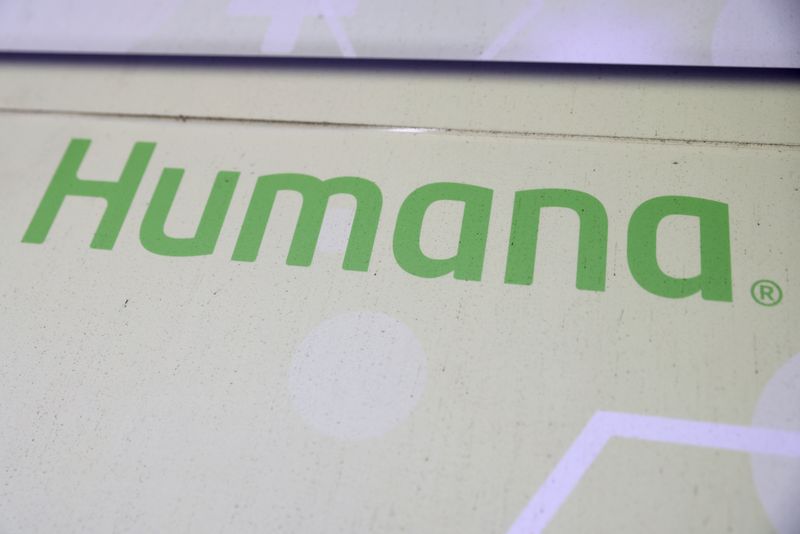By Jonathan Stempel
(Reuters) -Humana on Friday sued the U.S. government to block a Biden administration policy allowing Medicare to claw back billions of dollars from insurers for overcharges.
The lawsuit in federal court said the Centers for Medicare and Medicaid Services "did not even try" to justify its more aggressive approach toward determining whether private Medicare Advantage plans for people aged 65 and older were overpaid.
Humana objected to a rule announced on Jan. 30 to let the government recoup payments when audits uncover charges for diagnoses that are not in patients' medical records.
The insurer said the rule, which would apply retroactively, was "arbitrary and capricious," and threatened "unpredictable consequences for Medicare Advantage organizations and the millions of seniors who rely on the Medicare Advantage program for their healthcare."
Close to half of the approximately 65 million Medicare enrollees sign up for Medicare Advantage.
The Biden administration has said the crackdown could help the government collect as much as $4.7 billion over 10 years.
CMS, part of the U.S. Department of Health and Human Services, said in an email it does not discuss pending litigation.
Medicare Advantage plans differ from traditional Medicare because private companies offer them, and are reimbursed by the government for care.
Congress authorized the plans in 2003 as a means to encourage better healthcare at lower cost.
In announcing the rule, HHS Secretary Xavier Becerra called it "long overdue," citing federal watchdogs and outside experts who for many years had lamented Medicare's failure to crack down on overcharging.
The rule relates to a system of "risk adjustment" in which, for example, payments would be lower for healthier patients who might be expected to incur lower medical bills.
But Humana said CMS had more than a decade ago rejected the documentation standards required under the rule, and its "about-face" was unfair to insurers that relied on its prior practices.
Though Humana is based in Louisville, Kentucky, it filed its lawsuit with the U.S. District Court in the Northern District of Texas.
That court has in recent years been sympathetic toward some challenges to federal rulemaking.

The case was assigned to U.S. District Judge Reed O'Connor, a Fort Worth judge who previously declared unconstitutional all or part of the Affordable Care Act, also known as Obamacare.
The case is Humana Inc (NYSE:HUM) et al v Becerra et al, U.S. District Court, Northern District of Texas, No. 23-00909.